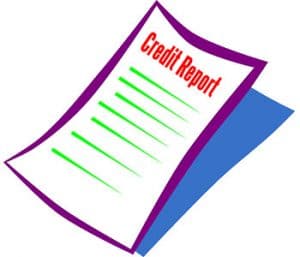 Image by Clker-Free-Vector-Images from Pixabay
Image by Clker-Free-Vector-Images from Pixabay
There’s a crude adage about what happens when you assume something–I won’t repeat it. However, I’m going to make an assumption that at one point you’ve signed up for some sort of financing plan. Any time you borrow money, you accrue credit, and most of the data involved is captured in a credit report. A credit report is supposed to be a reflection of how you’ve used credit in the past, including how much debt you’ve incurred, and whether or not you’ve paid the debt off on time.
Questions swirl around credit reports, and we have answers.
You can access your credit report from three credit reporting agencies (also known as credit bureaus): Experian, Equifax, and Transunion. Each entity sources your credit information from wherever you’ve borrowed–like mortgage lenders, for example–and collates it into a credit report. Now, it’s important to note that each agency is a little different and may not capture the same information, so it’s a best practice to check all three. You can also get a report by visiting websites such as annualcreditreport.com.
There are four main items included in your credit report:
A credit score is a three-digit number from 300 to 850 that measures the likelihood that you’ll pay your bills on time. Credit reporting agencies determine your score by a complex system that reviews items such as your payment history, the amount of debt you have, and the length of your credit history. The higher your score, the better, making it easier for you to work with lenders. Per Equifax, here are the scoring ranges:
Yes. Certain people and entities with whom you engage financially can view your credit report for a permissible purpose. When others check your credit, it may affect your credit score. In addition to yourself, these include:
Nothing. The Fair Credit Reporting Act entitles you to a free copy of each of your three credit reports once per year. Visit AnnualCreditReport.com to request your copies. (Due to Covid-19, consumers can actually review their credit report weekly for no charge.)
Each reporting agency has a dispute process, which consists of writing a letter to the credit bureau that explains in detail what is factually wrong with your credit report. Sometimes this is an easy process, while other times corrections are not easy to obtain. The Fair Credit Reporting Act provides avenues to consumers to have complete and accurate credit files. 15 U.S.C.1681
I’ll close with another adage: knowledge is power. Understanding your credit report and credit score will help you make the right decisions when planning financially.
To put 40+ years of combined experience in your corner, call (847) 613-2456 or contact us online today. We can begin with a complimentary, virtual consultation. Please follow us on Facebook and LinkedIn.